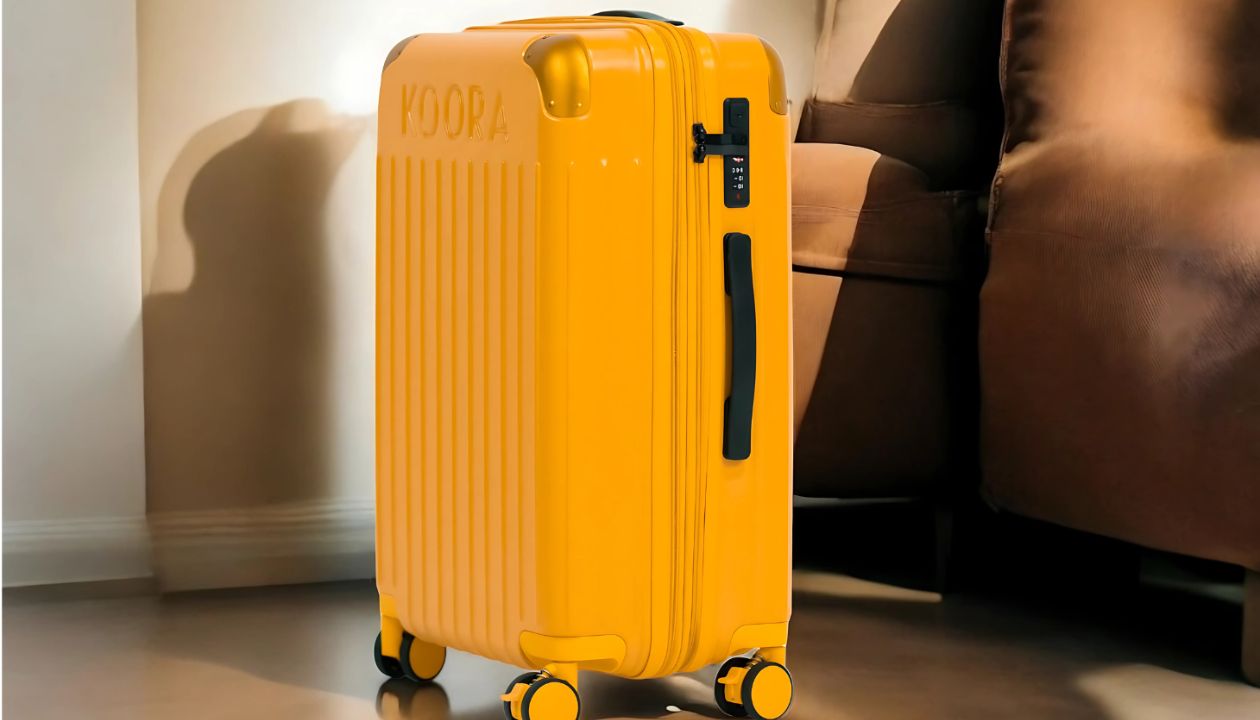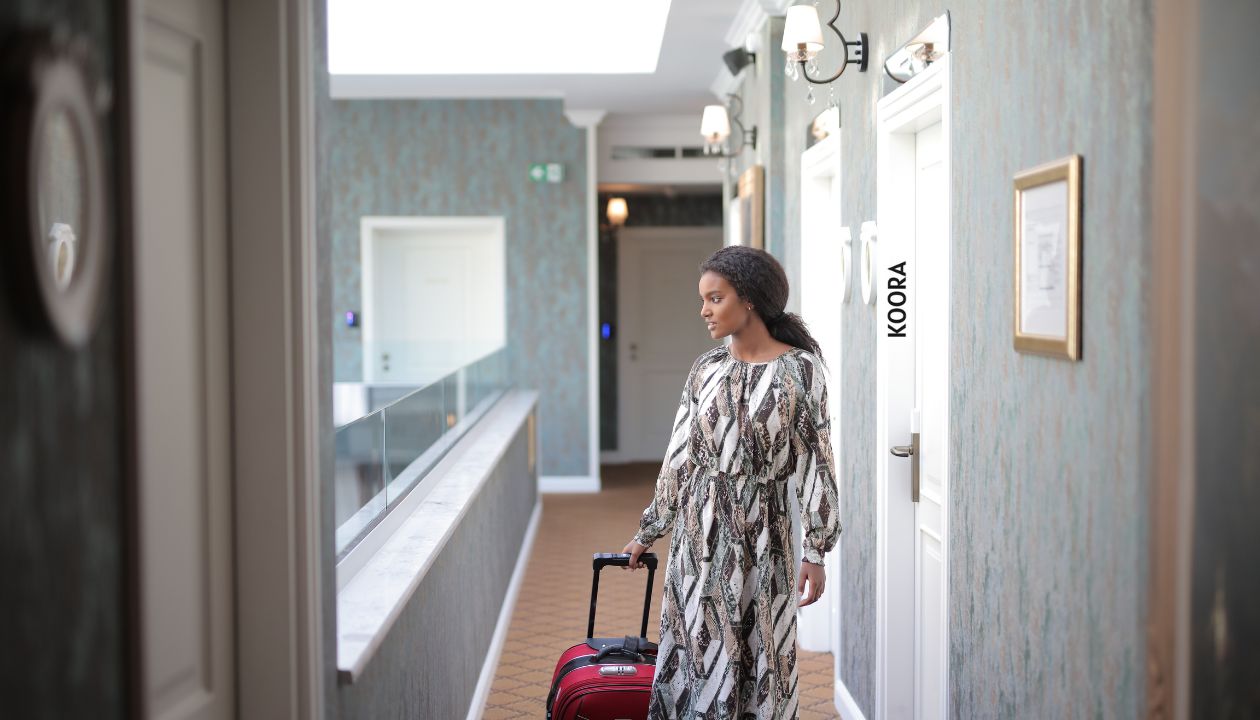
Sustainable Luggage for Business Travellers: Function Meets Responsibility
With the world of business moving fast, people in the industry are always flying, joining meetings, and setting up their offices in many different locations. Because we travel so much now, we need gear that keeps up with us. Now, more than ever, business travellers expect their luggage to be functional, stylish, and eco-friendly.

People who care about the environment are using their corporate travel decisions more wisely. It combines everything business travellers need, with an eye toward the environment. In 2025, we’ll have passed the point where we need to see if green travel gear exists—now we simply decide which one to take.
Let’s discuss why going green in travel is necessary, how to choose eco-friendly bags, and why smart choices will help your career and the environment.
Why Sustainability Matters in Business Travel
Business travellers often rack up more miles than the average vacationer. Multiple flights per month, frequent hotel stays, and the need for high-performing gear mean their travel choices have a noticeable environmental footprint.
Switching to sustainable luggage is one small but powerful way to offset that footprint. Here’s how:
1. Reduce Waste
Traditional suitcases often rely on synthetic materials and break down after a few years, ending up in landfills. Sustainable luggage is built to last, often using recycled materials and is designed for repairability.
2. Support Ethical Manufacturing
Many eco-conscious luggage makers prioritise ethical labour practices, fair wages, and safe working conditions. Choosing these products helps support human rights along the supply chain.
3. Align with Corporate ESG Goals
Many companies now emphasise Environmental, Social, and Governance (ESG) principles. Using sustainable travel gear demonstrates alignment with these values and sends a powerful message to clients and partners.
What Business Travellers Need in a Luggage
Whether you're heading to a pitch meeting or flying out for a quarterly review, your luggage needs to do more than just carry clothes. It should support your lifestyle, protect your tech, and help you look professional—all while being environmentally responsible.
Here’s what to prioritise:
1. Functionality
Your luggage should be smart and organised. Look for:
-
-
A dedicated padded laptop compartment
-
TSA-friendly design for quick security checks
-
Easy-access pockets for boarding passes, chargers, and passports
-
Expandable compartments for extra items on the return trip
-
2. Mobility
Smooth-rolling wheels, sturdy handles, and carry-on luggage compatibility make navigating busy airports and train stations easier. Opt for bags that meet global airline carry-on standards to avoid checking your luggage unnecessarily.
3. Durability
Frequent travel means more wear and tear. Choose luggage made from strong, recycled materials like rPET (recycled plastic), reinforced zippers, and scratch-resistant finishes.
4. Professional Aesthetic
Your luggage is an extension of your professional image. Sleek, minimalist designs in neutral tones convey confidence and sophistication, while still being eco-friendly.
One of the best options available is Koora, which makes all its luggage with care for the environment from the day they start making their product to the time it reaches you.
What Makes Luggage Sustainable?
Not all “eco-friendly” labels are created equal. Here’s what defines true sustainable luggage:
Recycled Materials
Many business bags on the market today are built with recycled bottles, old fishing nets, or materials that would have been discarded. Many recycled synthetic fabrics are as good or even surpass, the performance of those made with virgin materials.
Natural Alternatives
Organic cotton, hemp and leathers made from mushrooms or apples are being used by a few brands to reduce dependence on fossil fuels.
Non-Toxic Coatings
Choose to buy bags without PVC, PFCs or toxic dyes. Try to choose clothes and accessories that carry OEKO-TEX® or bluesign® certifications for safe processing.
Repairability
You can often take out the damaged part of sustainable luggage, rather than discarding the whole thing.
Ethical Production
It is very important to provide details about the bag’s production process. Valuing workers is as important for sustainability as valuing the materials used.
Practical Tips for Sustainable Business Travel
Beyond choosing the right luggage, here are a few ways to make your entire business travel routine more eco-conscious:
1. Pack Smart with Minimal Waste
Use packing cubes, compression bags, and reusable toiletry kits to avoid overpacking and reduce your need for single-use plastic on the road.
2. Avoid Checking Bags
Carry-on only travel not only saves time but also reduces fuel consumption from extra weight. Opt for compact, well-organised carry-ons that meet international sizing standards.
3. Offset Your Travel Carbon
If your company doesn’t already provide this, look into carbon offset programs to counteract your air miles.
4. Use Digital Instead of Print
Bring digital copies of presentations, tickets, and notes instead of printing. Store them securely in your eco-friendly laptop sleeve or smart luggage compartment.
How Sustainable Luggage Supports Your Brand
As a business traveller, your gear says a lot about you. Showing up with thoughtfully designed, sustainable luggage conveys:
-
Attention to detail
-
Awareness of global issues
-
Commitment to quality and long-term thinking
In a world where first impressions matter, your luggage could be the subtle cue that sets you apart as a modern, responsible professional.
And if you work in industries like tech, finance, consulting, or creative services, being seen as a forward-thinker in sustainability can boost credibility and reputation.
Think Circular: Don’t Just Buy—Maintain
Buying sustainable luggage is the first step. Maintaining it properly ensures you get the most out of your investment.
Maintenance Tips:
-
Clean your bag regularly using non-toxic solutions
-
Store it in a cool, dry place
-
Repair minor issues like stuck zippers or loose stitching
-
Avoid overloading and stressing seams
Some brands even offer trade-in or recycling programs—check to see if your bag can be refurbished or upcycled at the end of its life.
The Bottom Line: Travel Smart, Travel Green
Modern business travellers don’t just look for deals, but they’re also considering how their travel affects the world around them. When you use sustainable luggage, you won’t have to choose between style and what’s good for the environment.
Letting your eco-conscious checked-in luggage guide your workflow will help you push towards a future where doing what’s right and what’s useful happen at the same time. The things you bring when travelling ought to be tough, fashionable and environmentally friendly.
Before going on your next business trip, pause and consider both your schedule and what items you’re taking along. With function and duty combined, trips actually matter.



Leave a comment
This site is protected by hCaptcha and the hCaptcha Privacy Policy and Terms of Service apply.